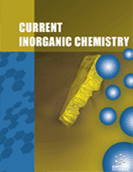Abstract
Background: Arene metal complexes with acyl hydrazine derived ligands exhibit serendipitous bonding modes and cytotoxic properties. The aim of this paper is to synthesize arene ruthenium, rhodium and iridium metal complexes of N, N’- Bis(picolinoyl)hydrazine ligand which exhibits discrete bonding modes. Structural elucidation of the complexes and the evaluation of their in vitro antibacterial and antitumor properties are also carried out.
Methods: Complexes are synthesized and characterized by spectroscopic and crystallographic studies. The electronic properties are explored by density functional theory calculations. The antibacterial activity is evaluated by agar well diffusion method and antitumor activity is carried out by fluorescence based apoptosis study. Docking analysis is used to know the interaction between the complexes and proteins under consideration.
Results: Arene ruthenium, rhodium and iridium complexes are isolated in good yields as yellow and orange solids. Various bonding modes in complexes are justified by spectroscopic and crystallographic studies. The preliminary investigation of these complexes revealed their antibacterial and antitumor activities. The ligand acts as tri and tetradentate donor forming mono and dinuclear complexes. Fascinating differences were observed in bonding modes among the complexes of ruthenium, rhodium and iridium.
Conclusion: Ligand under study forms dinuclear complexes with ruthenium as tetradentate nitrogen donor. It forms mononuclear complexes with rhodium and iridium as nitrogen donor and dinuclear complexes with rhodium and iridium as nitrogen and oxygen donor. Complexes under study exhibited significant growth inhibition of Salmonella enterica ser. Paratyphi better than that of Amoxicillin. The cytotoxicity of the complexes on normal cells is lesser than that of cisplatin which is a significant feature of the complexes under study.
Keywords: N, N’-bis(picolinoyl)hydrazine, apoptosis, antibacterial, ruthenium, rhodium, TDDFT.
 15
15

